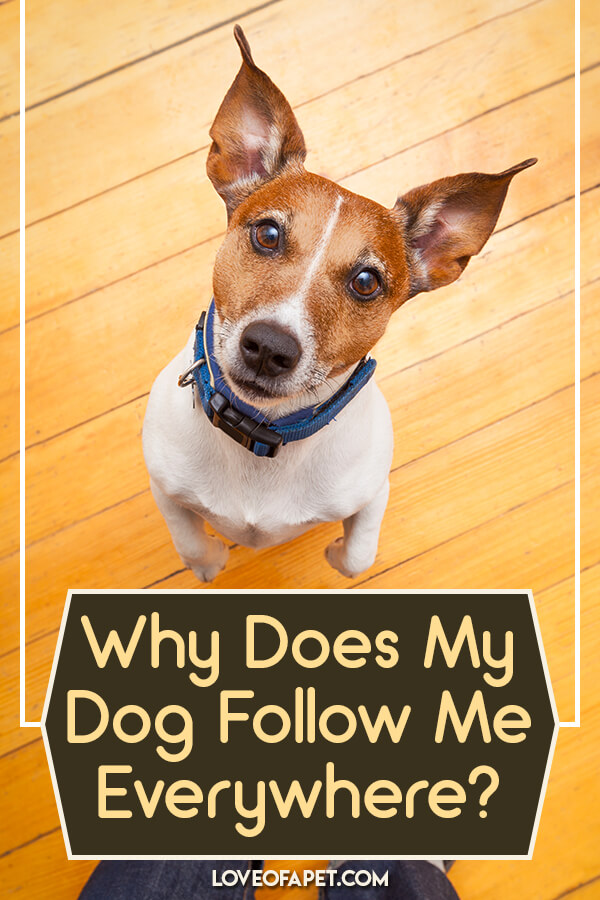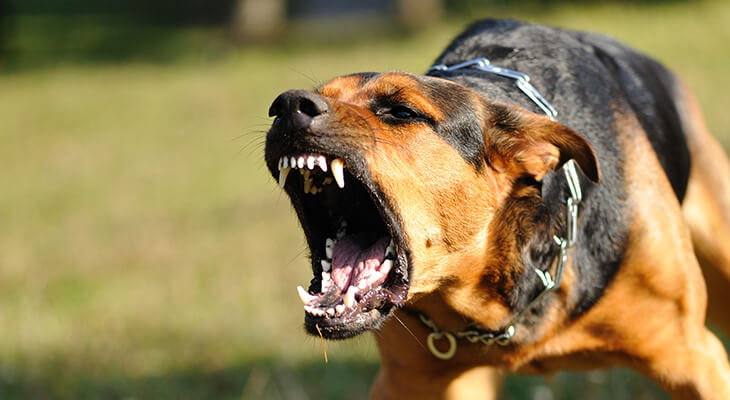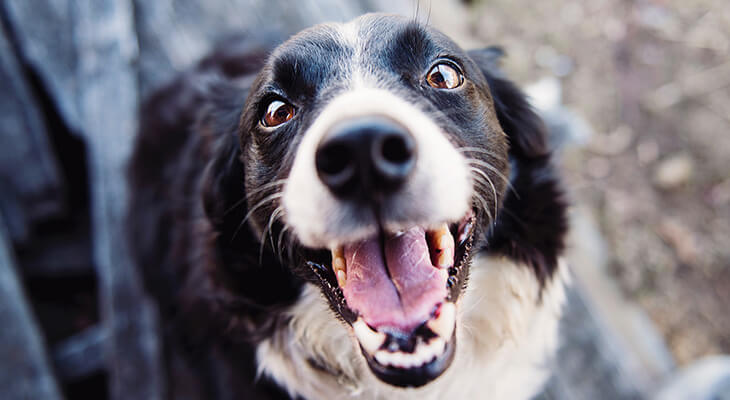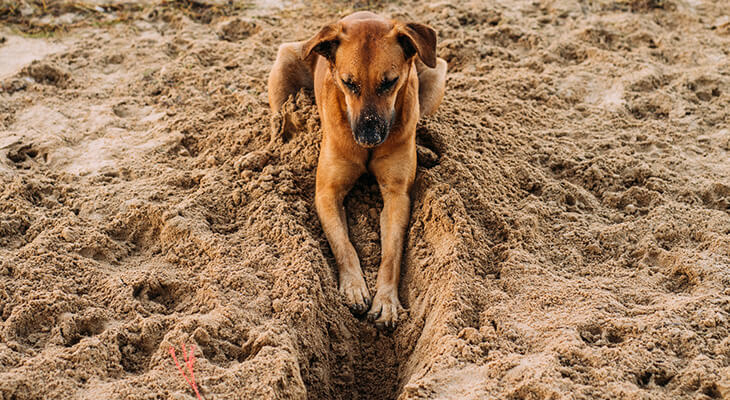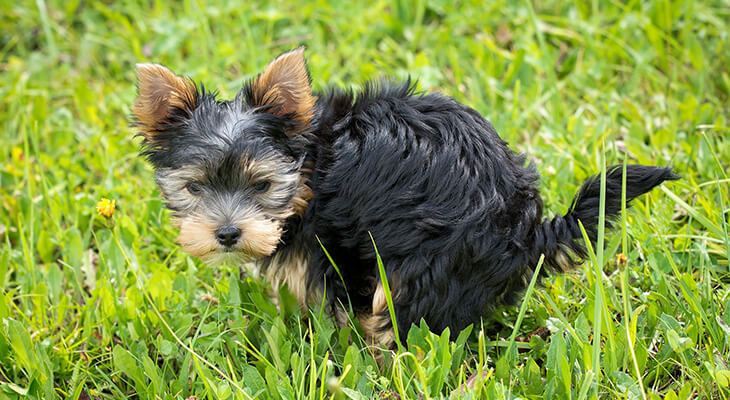We love to have pets, especially dogs. Dogs make the best companion to humans. Most of the time, dogs have a habit of following their owner, and this makes the owner question why their dog follows them. Although one should know that each dog has an innate desire to follow their owner, the owner should watch for certain signs as to whether their pet is behaving abnormally. In this article, we will discuss the reasons dogs follow their owners, the health benefits of learning about the relationship between a human and a dog, and how to detect abnormal behavior in a dog.
Contents
Why do dogs follow their owners everywhere?
Once you start noticing your dog follow you all the time, you may feel overjoyed or hassled as you keep tripping over them. A dog usually behaves like this for certain reasons. We will discuss why dogs love to follow their owners around.
1. Companionship
This is the most common reason dogs follow their owners. Your dog loves the companionship they share with you. When you bring a dog home, they naturally make you their master. Once you domesticate your dog, they start to bond with you the same way children bond with their parents. For this reason, the bond with your dog grows stronger over domestication.
2. Reinforcement
We notice that dogs often follow their owner if they have a great bond and the dog receives something in return. Once your dog understands that they can receive great things such as treats, back scratches and playing time with their owner, they tend to start following them around.
3. Separation anxiety
Some dogs frequently suffer from separation anxiety and fear the thought of being away from their owner. Dogs often have separation anxiety when we go out or come back home, and this triggers the dog to follow their owner.
4. Traits of certain breeds
Professionals often term the breeds of dog that follow you around as “Velcro dogs”.
How does my dog benefit from following me?
Once you start to notice your dog following you all the time, you may wonder if it does them any good. When dogs start to follow their owner and spend time with them, they develop a sense of reinforcement. By reinforcement, we mean treats, pats, games and other things that dogs love. Also, once your dog starts to follow you, they start to learn about your actions, which helps them interpret your behavior.
Dogs have a habit of adapting and understanding human gestures and language, and this helps them study human movements. They notice all our movements and try to figure out our intention and see whether we are trying to communicate with them. This way, dogs can understand when their owners call them for a walk, shower or even dinnertime. For this reason, many say that dogs understand human language, both physical and spoken, better than all other animals.
What benefits does a human have when dogs follow them around?
We often think that dogs love to be around humans, but we also benefit from them being close to us. By having a pet dog the owner can feel comforted. Also, when the dog wants to play and go for walks and runs, humans get their share of exercise done. Dogs love to stay near their owners and show them unconditional love. According to many studies, staying close to and interacting with dogs reduces our anxiety and stress and uplifts our mood. Dogs can even keep our heart healthy and help us detect cancer.
Most of the time, we bond more strongly with our dogs because they can understand our emotions. Due to this, our bond with dogs has developed over time. People also consider their dogs to be their best friend because they have an uncanny ability to communicate with us. According to many researchers, a dog’s ability to understand humans has helped develop the bond they share.
How will I know if my dog’s habit of following me has gone too far?
The owner needs to understand that their dog will follow them around and to look for cues that indicate whether their pet is behaving abnormally. However, when dogs start to follow you and look at you all the time, this is a concern. This tends to become even more concerning when the dog only follows a certain person. This can occur when the owner does not socialize the dog properly or idolizes their pet. When you notice this behavior in your dog, it can lead to fear of aggression, social and separation anxiety, and other issues with behavior.
Those who fear that their dog suffers from separation anxiety should opt for interactive toys, which will keep them busy while their owners stay out of the house. Switching on the television or playing music will also distract your dog and keep them calm. But in some cases, these distractions do not work. In this case, the owner needs to take another approach such as desensitization, which provides a behavioral solution. First, leave the house for a short period and then come back. Then, gradually increase the length of going out. Eventually, your dog will get used to you leaving the house for a longer period and not feel bothered.
Which dog breeds follow their owners excessively?
Dogs who love to follow their owners are known as Velcro dogs because they stick to their owners like a Velcro. Some Velcro dogs are:
- Labrador Retriever
- Golden Retriever
- French Bulldog
- German Shepherd
- Doberman Pinscher
- Coton de Tulear
- Pug
- Great Dane
- Shetland Sheepdog
- Italian Greyhound
How do I know if my dog has separation anxiety?
Dog owners should watch for certain signs that suggest that their dog is suffering from separation anxiety.
1. Aggressive
Aggression can turn dangerous when your dog suffers from anxiety. You might notice that direct aggression occurs when your dog becomes violent towards other animals and people. By indirect aggression, we mean when something comes between the dog and their owner. Although you can stop your dogs from biting or harming others, it can cause them to bark and growl.
2. Destructive behavior
When dogs suffer from separation anxiety, they start to show destructive behavior. Most of the time, dogs start to destroy the entry and exit ways such as doors and windows. In this process, they might end up harming themselves. They also try to break their crate, and this can hurt them.
3. Depression
Dogs and humans share the same symptoms of depression: withdrawal, inactivity, changed food and sleep habits and feeling low during periods of change.
How do I prevent my dog from following me everywhere?
Now here are some ways to reduce the excessive clinginess of your dog:
Teach the stay command
This is a great way to tell your dog to stop following you everywhere. Your dog will learn that it is fine to be left alone briefly. You should start with small distances. However, make sure your dog interprets this as playing a game. Gradually increase the distance—start from a small distance and then extend the distance to a point where you will be in a different room. Don’t forget to praise them.
- Try teaching the “go to your place” command
This is another command that you can teach your dog. Place a mat or carpet somewhere in the room and train your dog to believe it is their place. Give them toys to play with while resting there. Also, praise them when they listen to your command. Dogs always want their masters to praise them. They are like babies, so treat them that way and they’ll be a good child.
- Don’t let them sleep on the bed with you
Yes, fluffy is soft and looks cute while sleeping beside you, but he may be encouraged to keep following or mimicking you. Spread a mat on the ground in your bedroom and tell him to sleep there when it is bedtime.
- Teach them games that work at a distance
You can play hide n’ seek with your dog and train them to enjoy themselves when you are not around. Games like fetch, scent work and hide n’ seek can teach your dog to have fun alone.
Conclusion
Although your dog following you should not seem odd, try to look for signs of abnormal behavior. Also, if you own a Velcro dog breed, be prepared to receive their attention all the time.
